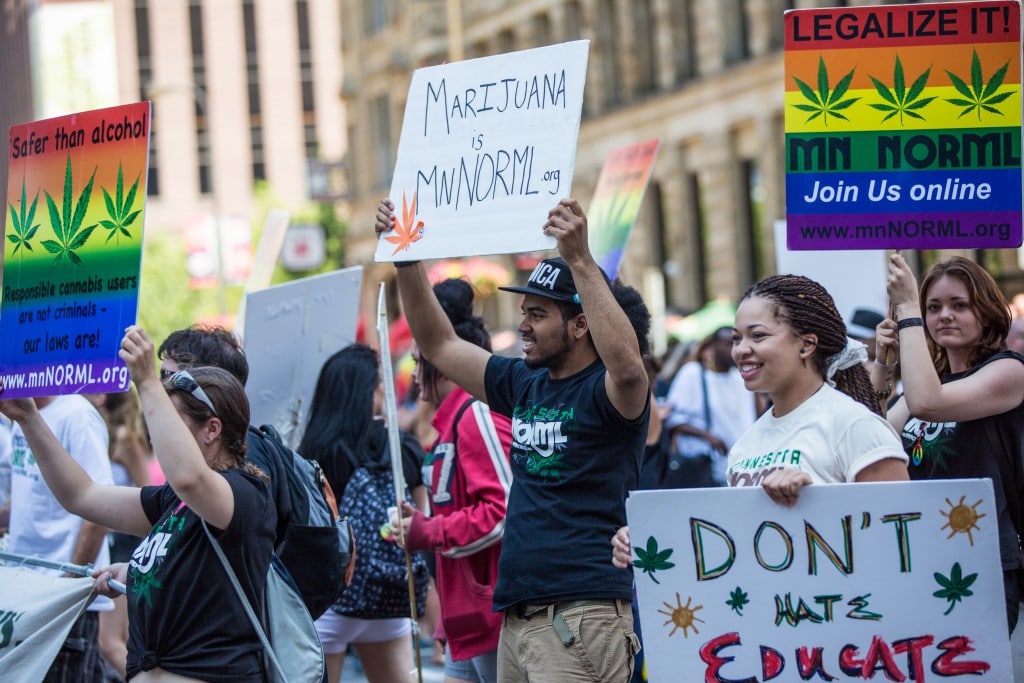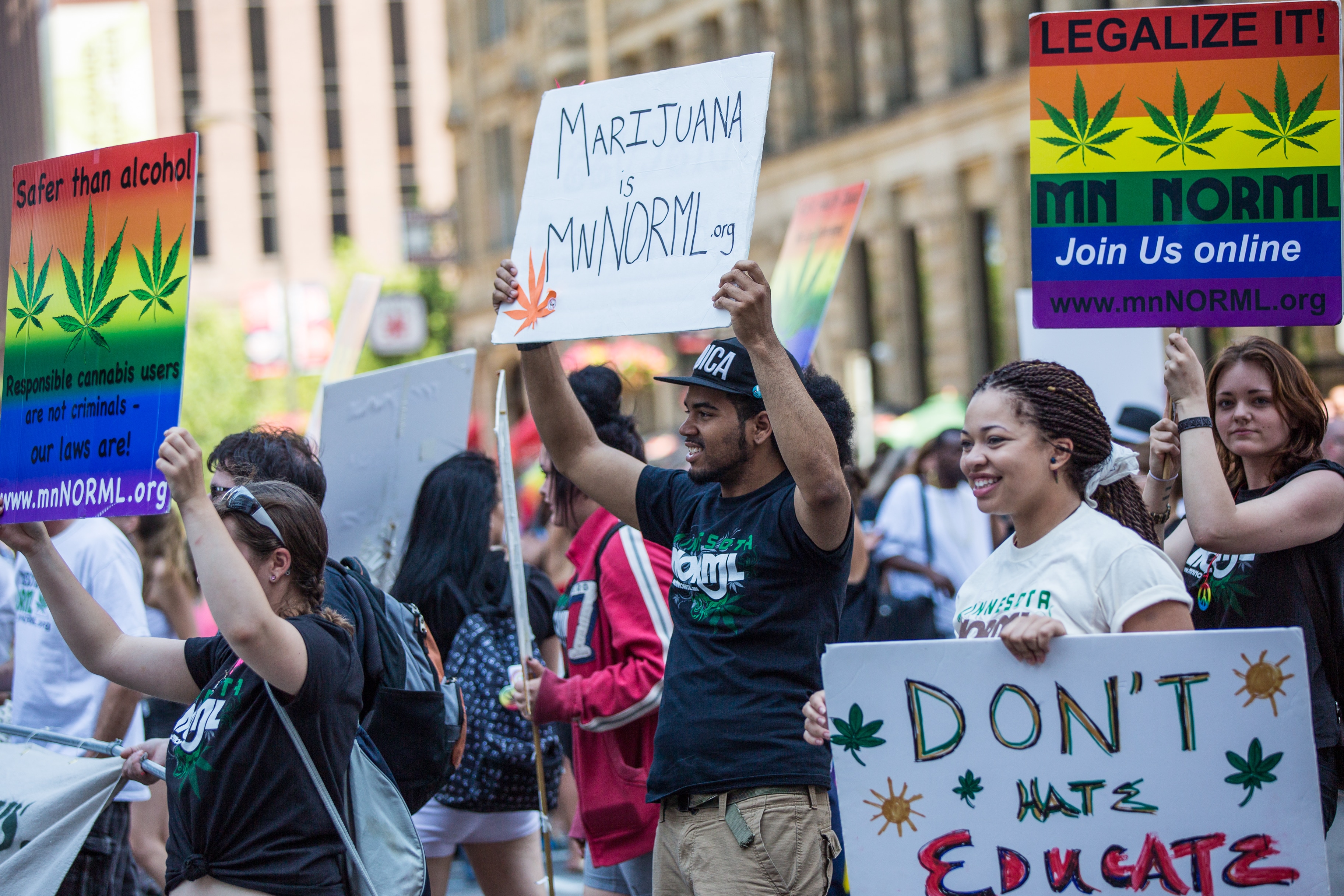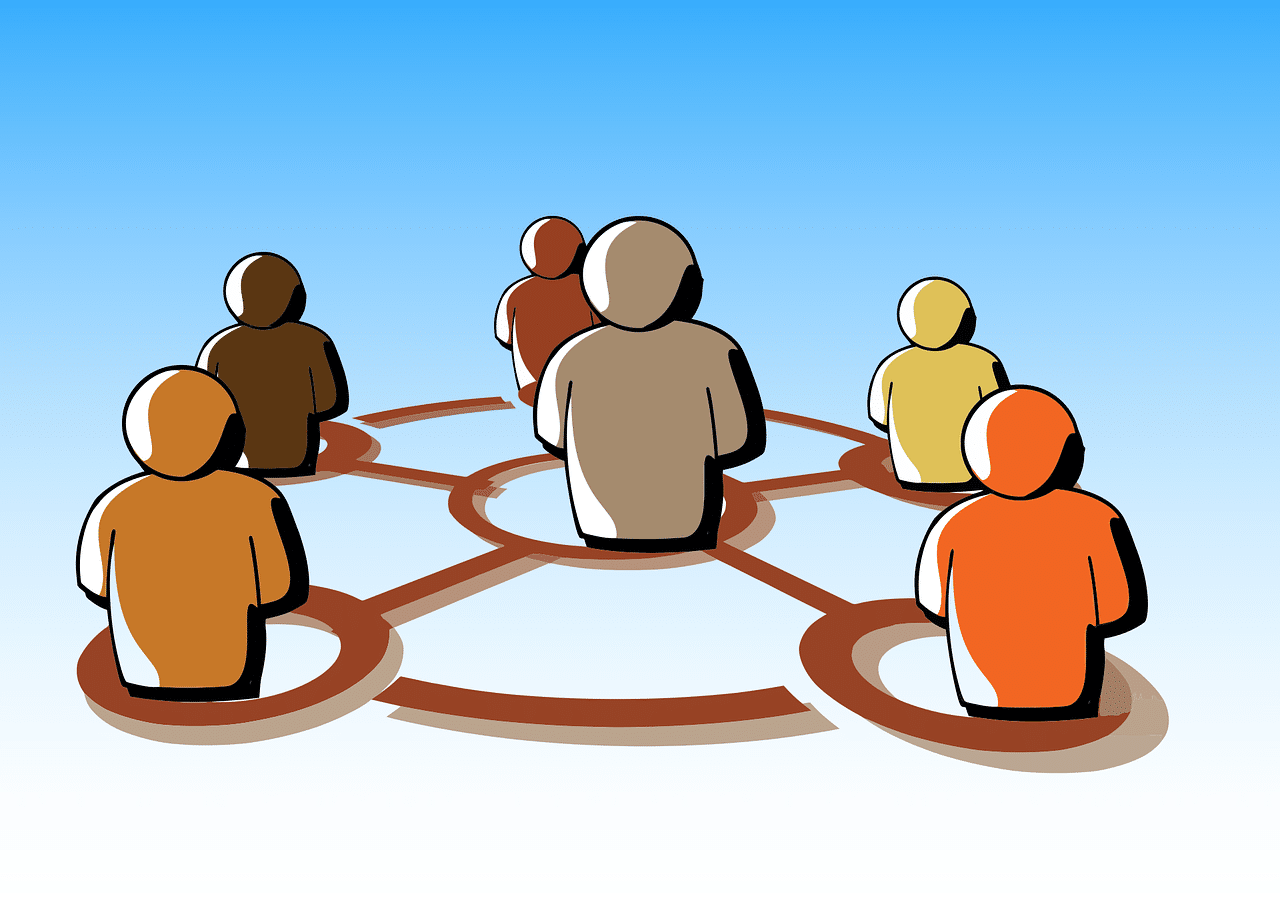
Across the United States, groups are advocating for the legalization of recreational marijuana. Image Source: Wikimedia user Tony Webster
In the recent elections, several states opted to loosen the rules regarding possession and usage of marijuana, bringing the total number of states allowing the legal recreational use of marijuana to seven: Alaska, California, Colorado, Oregon, Massachusetts, Nevada, and Washington. Many people celebrated these results, but, if you’re like me, you may realize it is also important that those who use marijuana approach the substance in an educated manner. If you are concerned about responsible marijuana use, here are some ways you can promote harm reduction in your community and among your friends.
Get Educated About the Risks of Marijuana Usage
Just because a substance is legally approved for recreational use does not mean it is safe to use in all ways or in all circumstances. Nicotine, caffeine, and alcohol are all approved for recreational use, but, just like marijuana, all of them carry negative side effects along with their benefits. Marijuana is unique in that it has a long history of being demonized as a highly dangerous drug by some groups and touted as a miracle cure-all by other groups. In reality, marijuana is somewhere in between, with real benefits and real risks.
The most commonly accepted risk of marijuana is lung irritation, which can be reduced through infrequent smoking, using a vaporizer as opposed to pipes or papers, and consuming edibles instead of smoking. However, it is also important to recognize other risks such as impaired judgement, an altered perception of reality, and the possibility of depression, anxiety, or addiction in some individuals.
Understanding the risks will help you make informed decisions about using marijuana and allow you to educate your friends or family members about potential risks they may not be aware of. Also, remember that these risks may be reduced by using marijuana in a safe, supported environment and working with psychedelic therapists.
Examine Why You Are Using It
People consume marijuana for a variety of reasons; curiosity, peer pressure, and the desire to relax or have fun are all potential motivations for recreational use. But marijuana also has powerful therapeutic uses and has been shown to be a potentially effective cancer treatment, a tool for treating depression or anorexia, and has even been approved in many states as a pain management drug. It is important to recognize the differences between recreational, medicinal, and therapeutic uses of marijuana and to realize that many of the medicinal and therapeutic benefits of marijuana will not be achieved when it is taken recreationally. When using marijuana to treat depression, the strain, dosage, and delivery method can all affect the effectiveness of the treatment, and these should be controlled by an expert. Similarly, marijuana may increase appetite and reduce stress in those with anorexia but will probably not lead to lasting changes without therapy.
With easier access to recreational marijuana, some may feel tempted to self-medicate various physical and mental problems rather than seeking professional guidance. But if you or someone you know is using marijuana for medical or psychological purposes, it is important to work closely with a professional who can help you with dosage and strain choice.
Get Involved With Harm Reduction Groups In Your Area
In recent decades, marijuana use has been criminalized, and the “war on drugs,” has gone global. A recent shift in attitudes has caused the creation of several harm reduction groups which focus on ways to limit the negative impact of illicit drug use in individuals and society. One harm reduction group, Dance Safe, focuses on providing testing kits and education to people who may use illicit drugs at clubs and festivals. The Zendo Project offers help and support to people having difficult psychedelic experiences as well as drug education at various festivals. While harm reduction groups tend to focus on illicit substances, I believe they will play a critical role in the safe integration of marijuana as a legal substance in the United States. Because these programs already have methods in place to teach people how to assist individuals having challenging experiences and promoting safe usage, they can lead the way in educating users, medical professionals, and therapists about promoting responsible marijuana use.
If there is a harm reduction project in your area, you should consider donating to them or volunteering with them. If there is not a local chapter or if your local group does not address marijuana use, contact a national organization, such as norml.org or the Drug Policy Alliance for more resources and advice on getting a program started in your area.
Support Child and Teen Education
Teens and children will particularly benefit from harm reduction influenced education programs. Regular marijuana usage may affect the developing adolescent brain differently than it affects a fully matured brain and can result in higher addiction rates, structural and functional abnormalities, and a lower IQ. Even though they are considered a vulnerable population, adolescents may be targeted in advertising campaigns as a potential consumer group in states where marijuana use is legal. Because of this, it is important that schools offer harm reduction based education programs that thoroughly discuss the risks and benefits of marijuana in realistic ways teens can relate to.
Until there are harm reduction based education programs in your local schools, you should talk to teens and children in your life about responsible marijuana usage and support local educational programs.
Stay Up-to-Date With Marijuana Research
Because of the shift in social acceptance of marijuana use, both federal and state guidelines are being relaxed regarding marijuana research. This means that, in the coming years, several studies about the effects of marijuana will likely be published, allowing professionals and individuals a greater understanding of its potential effects. In order to promote safe usage, it is important to stay somewhat up-to-date with this research.
Whether you are excited, nervous, or scared about the legalization of recreational marijuana in your state, there are ways you can positively contribute to responsible usage. By supporting harm reduction programs and more thorough education about marijuana, you can help encourage safe, intentional marijuana use within your community.










